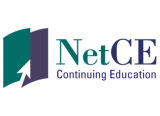Did you mean: Cultural competence?
Cultural Competency: Providing Meaningful Care to a Diverse Patient Population

We all possess innate biases that may cause us to treat patients differently without us even being aware of it. At the end of this course, you should be able to take a second look at instances in your patient interactions that might cause misunderstandings.
Category
- Cultural Competency
Format
- Self-study / Enduring
Credits
- 0.50 AMA PRA Category 1 Credit™
Implicit Bias

This module provides an overview of implicit bias, and how it is manifested in everyday clinical decision-making. Viewers will learn about the underlying psychology and neuroscience of implicit associations, and assess their own biases to increase self-awareness.
Category
- Implicit Bias
Format
- Self-study / Enduring
Credits
- 1.50 AMA PRA Category 1 Credit™
Cultural Competence: An Overview

Culture serves as a lens through which patients and practitioners filter their experiences and perceptions.
Category
Format
- Self-study / Enduring
Credits
- 2.00 AMA PRA Category 1 Credit™
- 2.00 ANCC
- 2.00 Association of Social Work Boards (ASWB)
Intercultural Competence and Patient-Centered Care

Culture serves as a lens through which patients and practitioners filter their experiences and perceptions.
Category
Format
- Self-study / Enduring
Credits
- 4.00 AMA PRA Category 1 Credit™
- 4.00 ANCC
- 4.00 Association of Social Work Boards (ASWB)
Delivering Culturally Competent Care: Managing Type 2 Diabetes in Diverse Populations

Credit PriceCME Certificate Fee: $25.00 (USD) per hr./creditOptional Maintenance of Certification Credit (MOC) Fee: $10.00 (USD) per pointsCredits Available
Category
Format
- Self-study / Enduring
Credits
- 9.00 ABMS MOC II
- 9.00 AMA PRA Category 1 Credit™
First Steps in Diversity, Cultural Humility, and Patient Care

This session will shine a light on health disparities in the U.S. and ways to overcome them by embracing diversity, combatting bias, and employing cultural competency to improve patient-provider communication.
Category
- Cultural Competency
Format
- Self-study / Enduring
Credits
- 1.00 AANP Contact Hours
- 1.00 AMA PRA Category 1 Credit™
How to Taper Patients Off of Chronic Opioid Therapy

Internet Enduring Material Sponsored by the Stanford University School of Medicine. Presented by the Department of Psychiatry and Behavioral Sciences at Stanford University School of Medicine
Category
Format
- Self-study / Enduring
Credits
- 1.25 AMA PRA Category 1 Credit™
Child Abuse in Ethnic Minority and Immigrant Communities

Child abuse and neglect is a serious social problem. Research indicates that a significant number of children in the United States have been victims of physical abuse.
Category
Format
- Self-study / Enduring
Credits
- 10.00 AMA PRA Category 1 Credit™
- 10.00 ANCC
- 10.00 Association of Social Work Boards (ASWB)
Implicit Bias: The Michigan Requirement

The role of implicit biases on healthcare outcomes has become a concern as some cite that implicit biases contribute to health disparities, professionals' attitudes toward and interactions with patients, quality of care, diagnoses, and treatment decisions.
Category
- Implicit Bias
Format
- Self-study / Enduring
Credits
- 2.00 AMA PRA Category 1 Credit™
- 2.00 ANCC
- 2.00 Association of Social Work Boards (ASWB)
Domestic and Sexual Violence

Victims of domestic and sexual violence suffer emotional, psychological, and physical abuse, all of which can result in both acute and chronic signs and symptoms of physical and mental disease, illness, and injury.
Category
Format
- Self-study / Enduring
Credits
- 5.00 AMA PRA Category 1 Credit™
- 5.00 Association of Social Work Boards (ASWB)

 Facebook
Facebook Twitter
Twitter LinkedIn
LinkedIn Forward
Forward